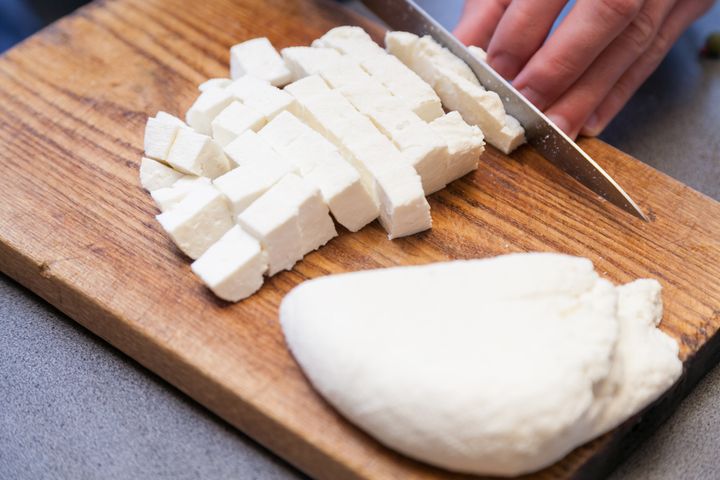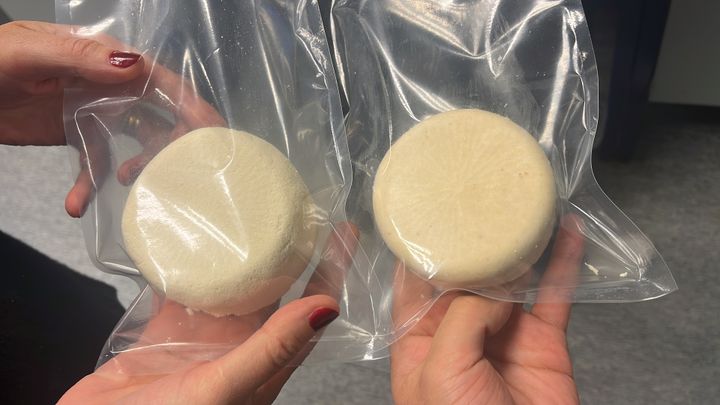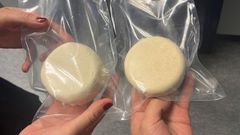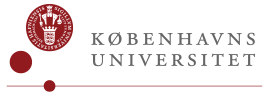Popular cooking cheese made with peas yields same taste and texture
18.3.2025 08:47:00 CET | Københavns Universitet | Press release
A significant amount of the milk used in a popular cooking cheese can be substituted with plants, all while maintaining its taste and texture. Researchers from the University of Copenhagen have demonstrated this by creating a hybrid version of paneer, a popular South Asian cheese, with twenty-five percent pea protein. The result is a solid step towards more sustainable dairy products with nutritional benefits.

Creamy, crumbly, mild, or sharp — cheese is a true crowd-pleaser. From everyday meals to gourmet delights, it’s a staple across the Western world. In 2023, the average European enjoyed 20.5 kilograms of cheese.
But it is no secret that, as a dairy product, heavy cheese consumption comes with a significant environmental impact. As such, extensive research is being conducted on how to produce plant-based cheeses. Unfortunately, finding an entirely plant-based cheese that satisfies cheese lovers in terms of both texture and taste has been difficult. And texture in particular has been challenging to get just right.
So, food researchers at the University of Copenhagen opted for a different approach – hybrid cheese. They see cheese produced from a combination of milk and plant proteins as the way forward.
"It’s really difficult to create a texture that matches regular cheese if you only use plant proteins. Therefore, our strategy is to get the best of both worlds by replacing as much milk protein as possible with plant protein, without compromising on taste and texture," says Professor Lilia Ahrné from the Department of Food Science. She continues:
"Because, consumers who don't like the taste experience won't buy a product just because you tell them it's sustainable."
She and her team have now successfully developed a recipe for a hybrid cheese similar to paneer, a widely-used South Asian cooking cheese. Their hybrid paneer consists partly of casein, the milk protein that is the main component of paneer, and partly of pea protein. And as peas are grown in Europe they are a more sustainable choice than, for example, soy-based protein.

25% peas
"We’ve investigated what happens to a cheese's texture as we add more pea protein. How much can we add before it falls apart or loses its original paneer shape? Our experiments show that at least 25% of the milk proteins can be replaced with pea protein while still producing a cheese with a texture, shape, and taste similar to the original product," says postdoc Wenjie Xia, first author of the study published in Food Research International.
When making paneer and most other cheeses, part of the process involves pressing it. In their experiments, the researchers applied higher pressure than usual to the hybrid cheese because pea proteins retain more water than milk proteins. This increased pressure helped the cheese maintain a solid shape despite its relatively high plant-based content.
"Hybrid cheeses like this are a solid step towards more sustainable dairy products. We demonstrate that it is possible to replace a significant portion of the milk in cheese with plant protein. With further research, we believe that it will be possible to reduce the milk content even more while still creating a product that people want to eat. In this way, there is great potential to reduce the climate footprint of a popular food category," says Wenjie Xia.
Not only do hybrid cheeses lower the climate footprint, they can also have nutritional advantages, Lilia Ahrné points out:
“While dairy ingredients contribute with better protein quality (essential amino acids) and calcium, plant ingredients can bring dietary fibers to the product. So also nutrionally hybrid cheese has the potential to bring together qualities from both worlds.”
Grilled, baked or fried
The researchers decided to focus on paneer because they see great potential in this type of cheese. Cooking cheeses such as paneer, halloumi and feta are all characterized by the fact that they don’t melt when baked or fried.
"Because of paneer's properties – that allow it to be both grilled and baked without melting – it has been a popular meat alternative in India for many years, where there are many vegans and vegetarians. That’s why we see this type of cooking cheese as a potential meat substitute in the West, where we enjoy grilling and frying our food," says Lilia Ahrné.
The researchers emphasize that, despite the promising start that shows we get right the texture, further studies could help refine the taste experience before the cheese goes into production.
Keywords
Contacts
Lilia Ahrné
Professor
Department of Food Science
University of Copenhagen
lilia@food.ku.dk
+45 35 33 37 94
+45 93 56 55 07
Wenjie Xia
Postdoc
Department of Food Science
University of Copenhagen
wenjie.xia@food.ku.dk
+45 35 33 19 75
Maria Hornbek
Journalist
University of Copenhagen
maho@adm.ku.dk
+45 22 95 42 83
Images

Links
ABOUT THE FACULTY OF SCIENCE
The Faculty of Science at the University of Copenhagen – or SCIENCE – is Denmark's largest science research and education institution.
The Faculty's most important task is to contribute to solving the major challenges facing the rapidly changing world with increased pressure on, among other things, natural resources and significant climate change, both nationally and globally.
Subscribe to releases from Københavns Universitet
Subscribe to all the latest releases from Københavns Universitet by registering your e-mail address below. You can unsubscribe at any time.
Latest releases from Københavns Universitet
Hvor fandt stenalderens første bønder egentlig deres planter? Nyt studie giver svar13.2.2026 10:05:51 CET | Pressemeddelelse
Ved hjælp af avancerede maskinlærings- og klimamodeller har forskere vist, at forfædrene til afgrøder som hvede, byg og rug sandsynligvis var langt mindre udbredte i Mellemøsten for 12.000 år siden, end man hidtil har troet. Det kan betyde, at kultiveringen af de første planter og dermed landbruget opstod andre steder end hidtil antaget.
Når krisen kradser, står Danmarks frivillige klar11.2.2026 13:25:56 CET | Pressemeddelelse
En del af befolkningen står parat til at træde til, når der er krise og andre har brug for hjælp. Disse mennesker udgør en slags civilt beredskab af frivillige, mener KU-forskere fra Sociologisk Institut. Men det er ikke nødvendigvis de samme frivillige, du kender fra foreningslivet.
Graviditet ændrer kvinders reaktioner på spædbørn9.2.2026 14:28:56 CET | Pressemeddelelse
Gravide kvinder reagerer mere positivt end ikke-gravide, når de præsenteres for lydoptagelser, videoer og billeder med spædbørn. Det tyder på, at en graviditet forbereder kvinder mentalt på at håndtere signaler fra spædbørn, viser et nyt studie fra Københavns Universitet og Psykiatrisk Center København.
Algoritmer afslører nye sider af det moderne gennembruds litteratur3.2.2026 13:16:47 CET | Pressemeddelelse
Forskere fra Københavns Universitet har digitaliseret 850 romaner fra det moderne gennembrud (1870-1900) og analyseret dem ved hjælp af algoritmer og AI. De kan nu vise, at perioden gemmer på en række oversete værker, der behandler temaer som køn og religion på overraskende måder.
Ny forskning: Styrket tidlig indsats giver markant færre ordblinde elever2.2.2026 09:50:41 CET | Pressemeddelelse
Et nyt undervisningsprogram målrettet elever i 1. klasse med øget risiko for ordblindhed har stor positiv effekt, viser en ny undersøgelse ved Center for Læseforskning på Københavns Universitet. I 3. klasse var andelen af ordblinde betragteligt lavere blandt de elever, der havde deltaget i det nye undervisningsprogram sammenlignet med eleverne i kontrolgruppen.
In our pressroom you can read all our latest releases, find our press contacts, images, documents and other relevant information about us.
Visit our pressroom